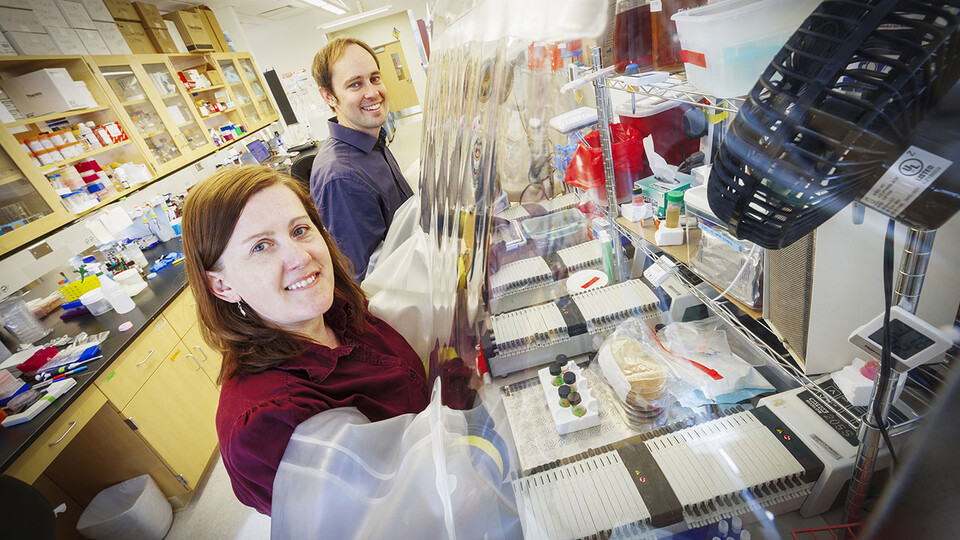Microbiologists’ work adds to research on microbiome fungi and childhood disease

June 23rd, 2022
A surge in research projects on the human microbiome — the complex ecosystem of microorganisms in the human gastrointestinal tract — is bolstering scientific understanding of health, disease and environment. Much of the research has focused on gut bacteria and viruses, leaving a third factor — fungi — little studied.
An international consortium of scientists has conducted the first large-scale study of gastrointestinal fungi throughout early childhood. The research team included Thomas and Jennifer Auchtung, husband and wife microbiologists in the University of Nebraska–Lincoln’s Food Science and Technology Department.
The findings, recently published in the journal Nature Communications, help fill significant gaps in scientific knowledge of the fungal dimensions of the microbiome and identify areas for further study.
“Gut microbe interactions in early childhood are critical for proper immune responses,” the study said, “yet there is little known about the development of the fungal population from infancy into childhood.”
To look for answers, six clinical research centers participated, studying stool samples of 888 children ages 3 months to 48 months from Washington, Colorado, Georgia and Florida, as well as Germany, Sweden and Finland. The research particularly focused on possible connections between gastrointestinal fungi and the occurrence of Type 1 diabetes. Previous studies suggested that individuals with the disease have atypical gastrointestinal fungal communities. This new study — part of a project that goes by TEDDY, or The Environmental Determinants of Diabetes in the Young — collected samples from children before they developed disease and thus allowed researchers to address what may be causing illness.
Because there are many questions about fungi and other factors that could contribute to the development of autoimmune diseases such as Type 1 diabetes and celiac disease, the TEDDY project assembled this major data sample of international scope to help provide answers. Nebraska’s Holland Computing Center was a key resource, providing the analytical power to process the collected information.
For full news story click HERE
Story by Geitner Simmons | IANR Media
